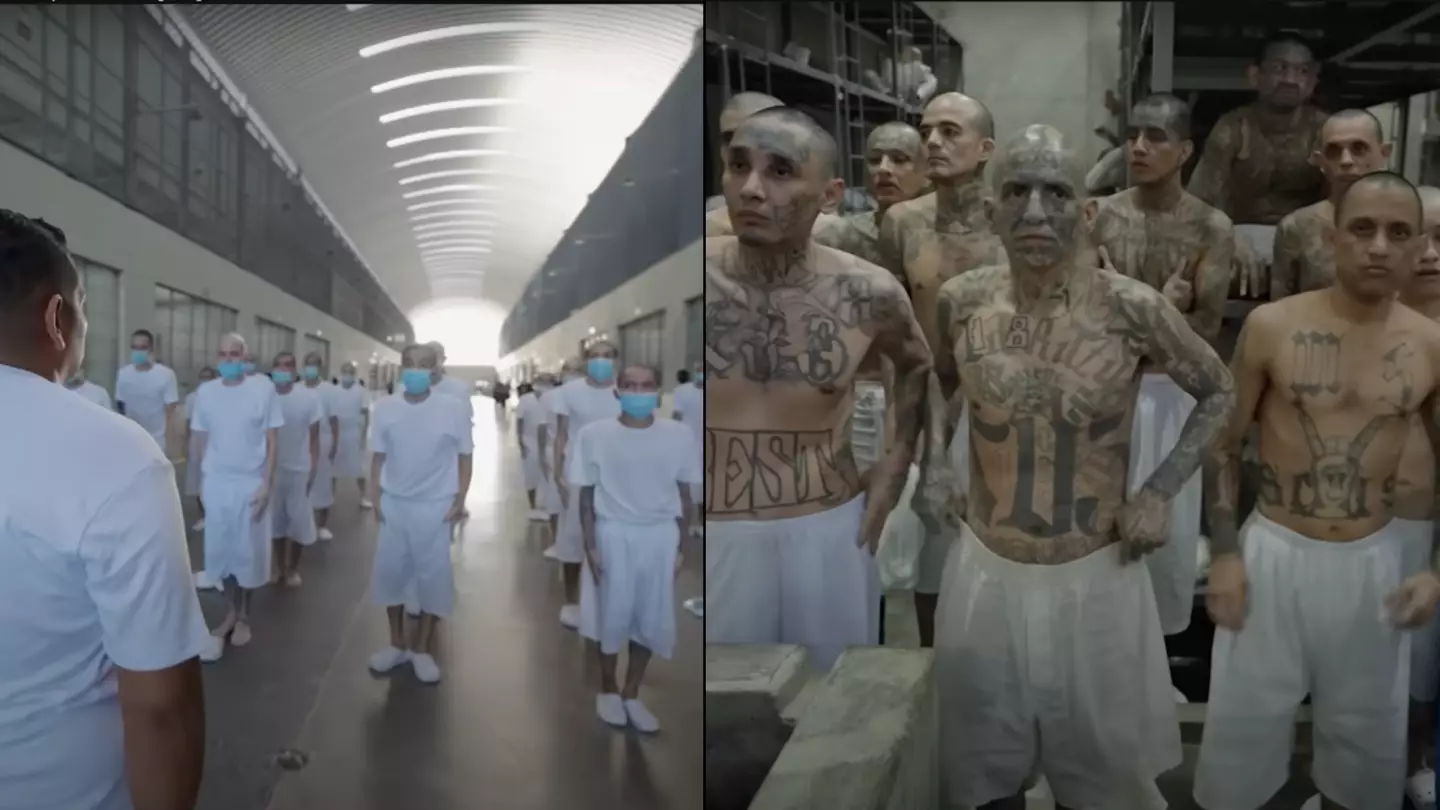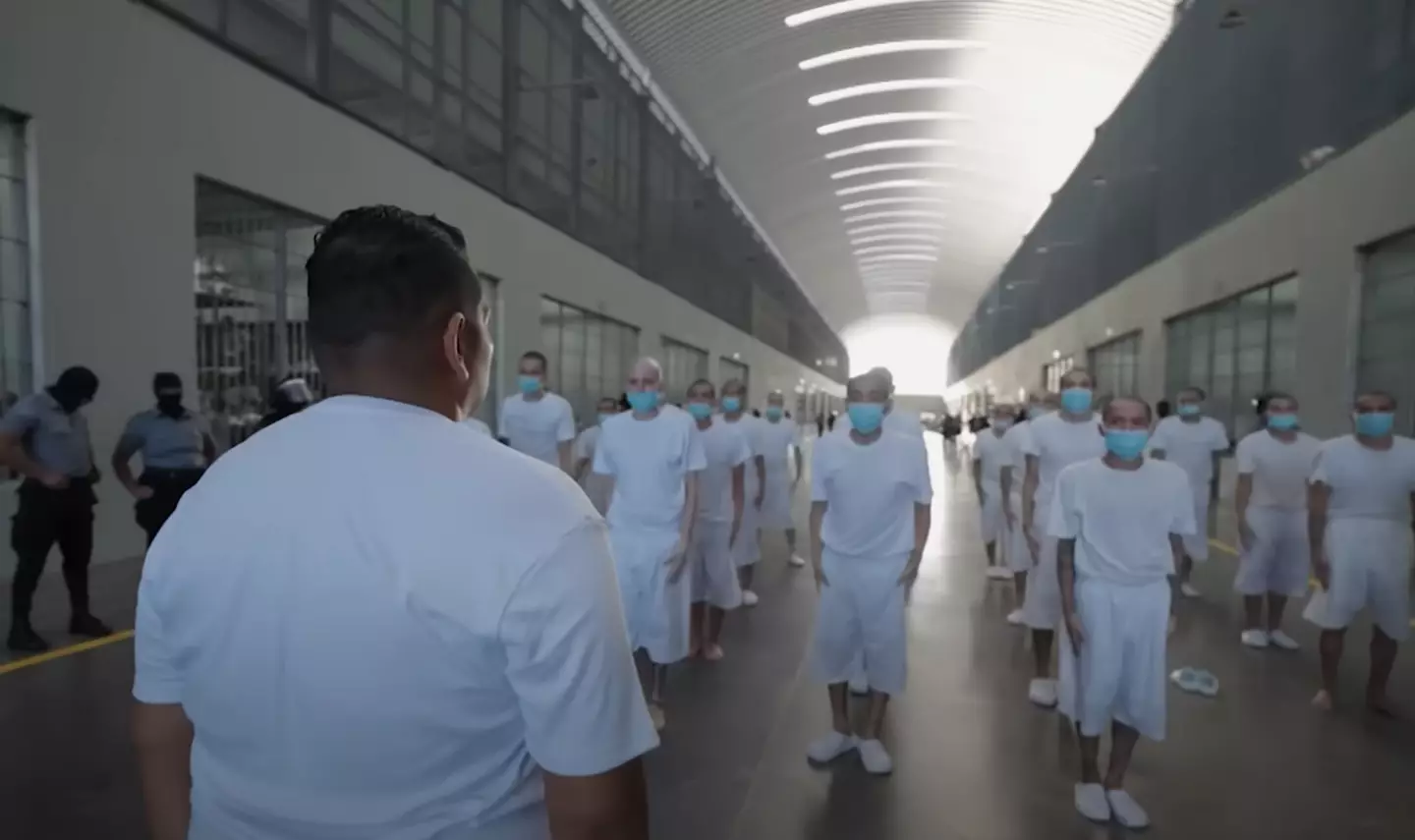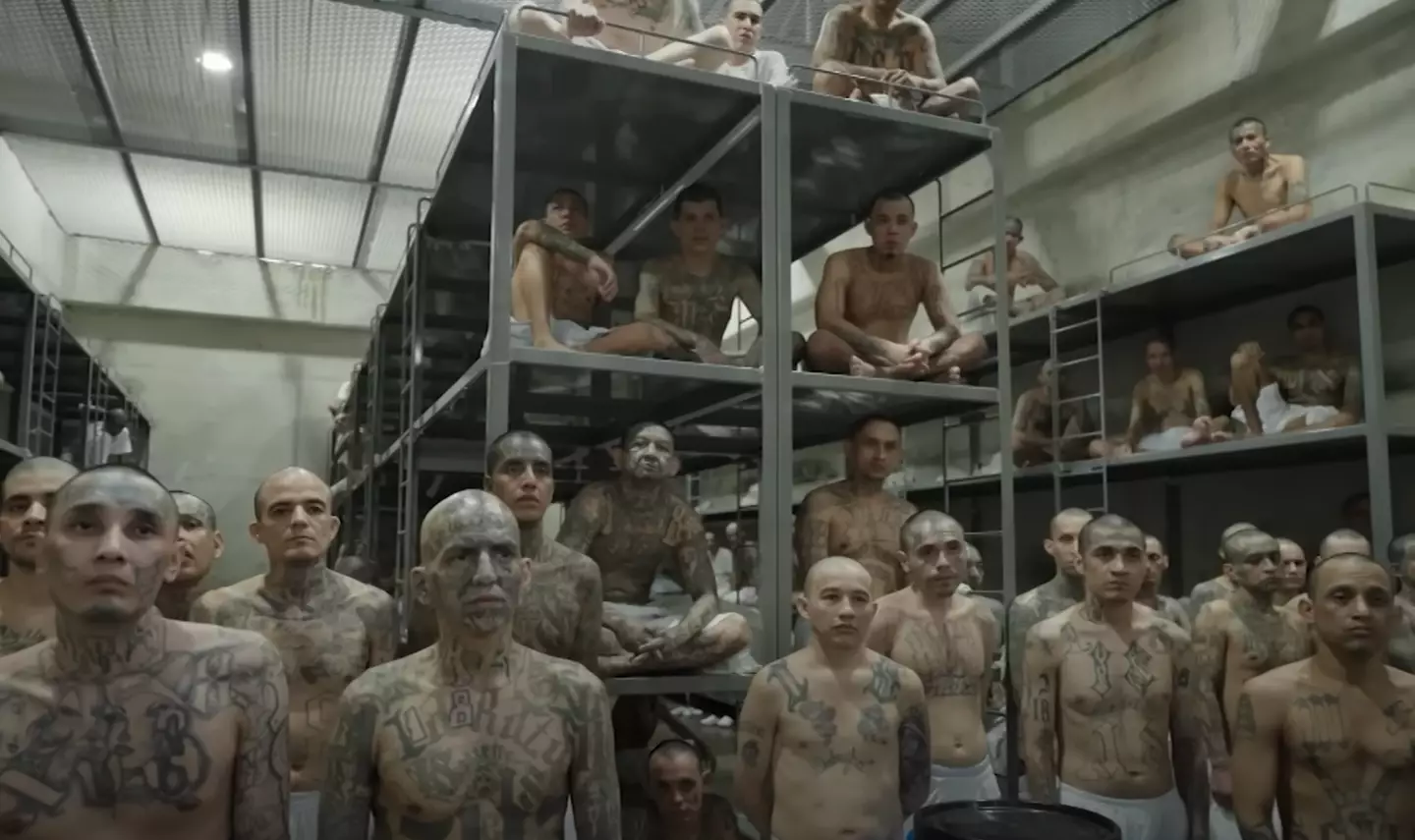
A reporter was allowed access inside one of El Salvador's most notorious prisons - and was left shocked by what he witnessed.
The central American nation of El Salvador was once gripped by gangs and organised crime, previously earning it the title of one of the most dangerous countries in the world.
However, things have drastically changed since President Nayib Bukele came to power in 2019. Promising to eradicate gang violence, the 43-year-old has since implemented a strict crackdown on crime - with over 83,100 people accused of having gang affiliations currently incarcerated.

Advert
Over five years on from Bukele's election, CNN reporter David Culver was granted access inside Cecot, the country's Terrorism Confinement Centre, which houses heavily tattooed criminals dubbed 'worst of the worst'.
"It's tense and uncomfortable," Culver notes, after being faced with hundreds of shirtless men staring silently at him.
Opened by the authorities in January 2023, Cecot sits in an 'isolated' and mountainous area of El Salvador and has total capacity of 40,000. Conditions in the prison are basic, with prisoners sleeping in beds without mattresses and bathing in a communal pool of water. The prison also keeps the lights on 24/7, which makes it difficult for inmates to sleep.
"Officials say comfort isn't meant to exist [here]," Culver added.
Once inside the prison, the inmates 'never leave' with everything from doctor trips to legal visits done within Cecot's many walls.

Perhaps one of the most shocking revelations from the video was a glimpse into the solitary confinement cells, which are a pitch-black room featuring a single, tiny hole that serves as the room's only source of light.
"They can be in here for 15 days potentially," Culver explained.
Although El Salvador's maximum security prisons have rapidly decreased crime levels in the country, critics have also raised concerns about potential human rights violations as well as innocent people finding themselves wrongly incarcerated.
Earlier this year, the BBC published the story of José Duval Mata, a 26-year-old tractor driver who has been locked up for two years on charges of 'illicit association', which is used to describe detainees with no obvious gang links. He remains imprisoned despite the country's legal system ordering his 'immediate release'.
Culver's report notes that Bukele's administration accepts that innocent people have been wrongly detained, with around 7000 people having been reportedly released. However, they maintain the wrongful arrests were simply 'collateral damage'.
Despite criticisms and concerns of false imprisonment, Bukele remains hugely popular amongst the population of El Salvador, recently winning his re-election bid back in February by a landslide.